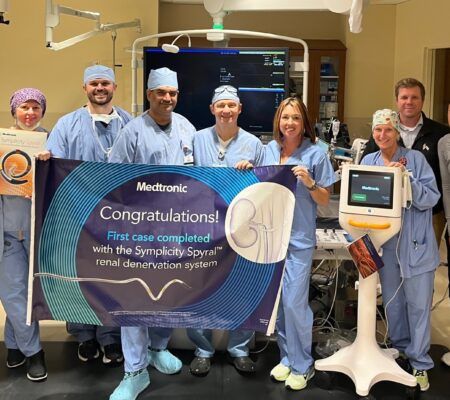What Is a Calcium Scoring CT Screening?
This screening uses a CT scan to look for calcium deposits in the coronary arteries. The amount of calcified plaque found is expressed as a calcium score.
Excessive plaque and calcium can lead to a condition known as coronary artery disease. Your physician can use this information to evaluate your heart disease risk and recommend the most suitable risk reduction plan for you.
The screening is noninvasive and takes about 10-15 minutes. No special preparation is required before the scan.
Why Is It Important?
Coronary artery disease due to atherosclerosis is the leading cause of death in the United States. Calcium scoring can detect the disease before symptoms such as chest pain develop. Early detection and treatment can help reduce the overall risk of a heart attack.
Is Calcium Scoring Right for Me?
Calcium scoring is most beneficial to men between the ages of 40 and 70 and women between the ages of 50 and 70 who have risk factors for heart disease (family history, abnormal cholesterol, high blood pressure, smoking, diabetes).
In some cases, screening at an earlier age may be recommended.
How Do I Schedule a Screening?
Screening costs $99 and is not covered by Medicare or insurance providers. A physician’s order is required.
Talk to your primary care provider or cardiologist if you would like to have this test.





